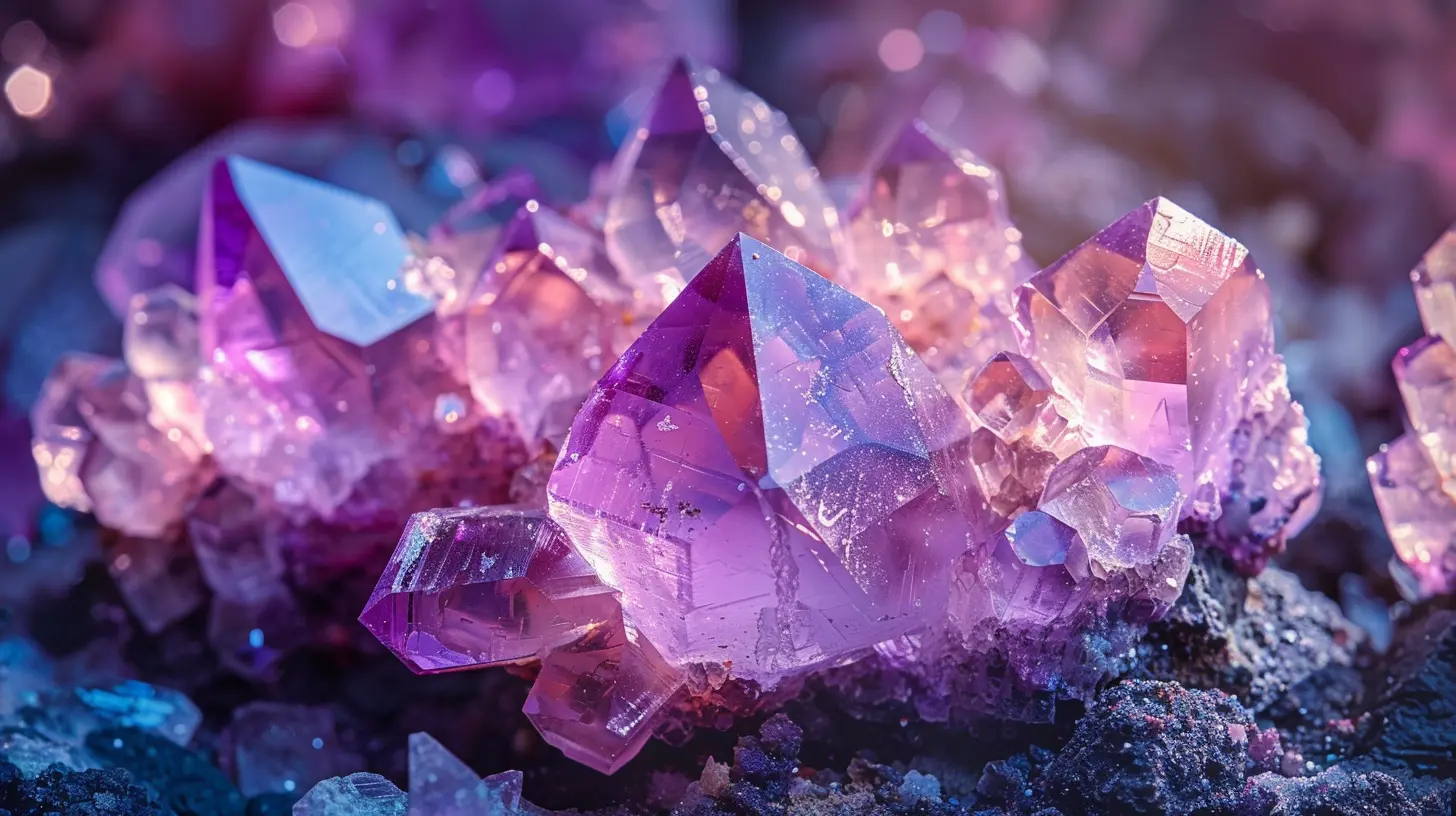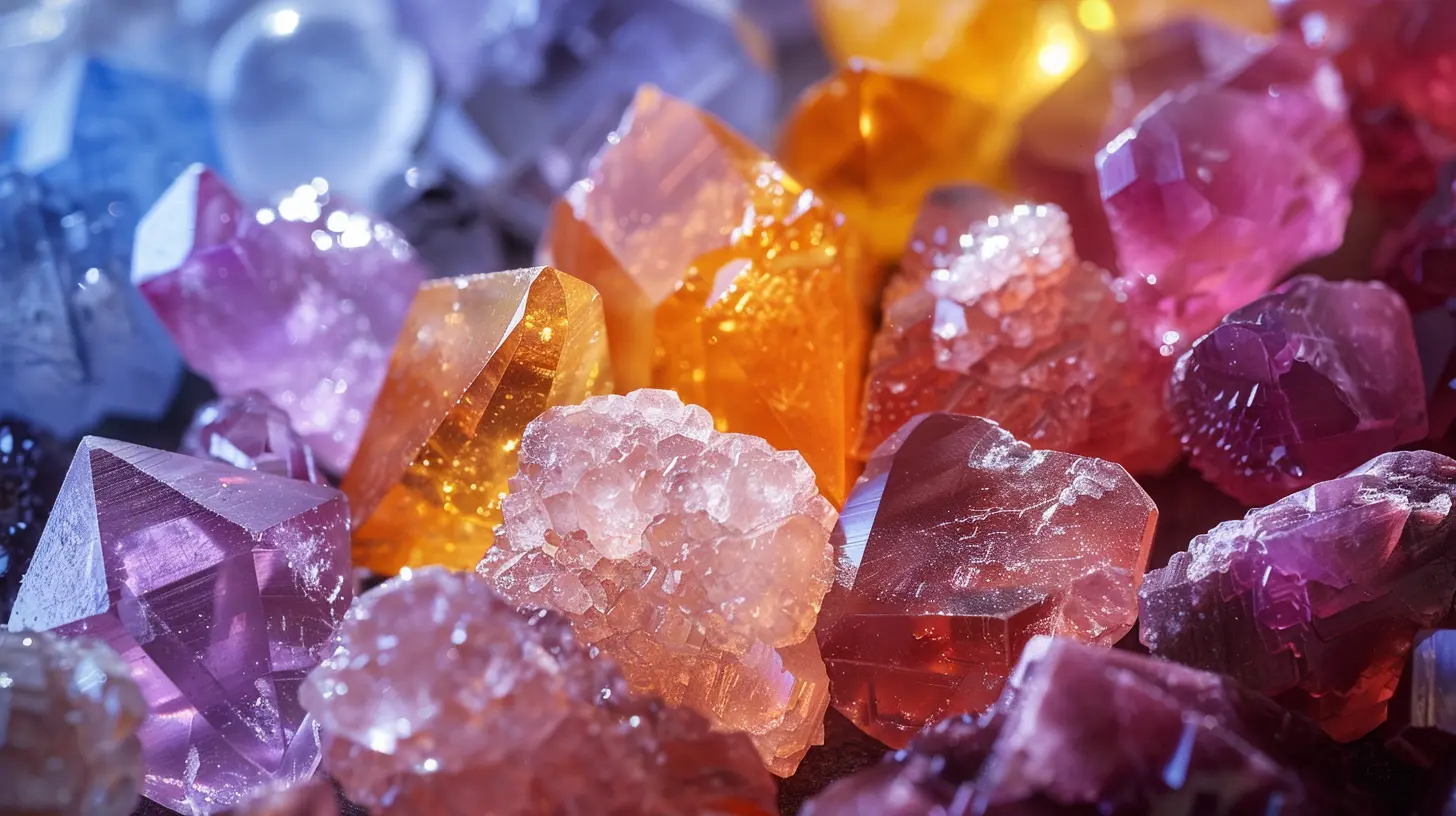The Link Between Lithium and Mood Stability
5 October 2025
Ever feel like your mood has a mind of its own? One moment you're on cloud nine, the next you're ready to throw your phone out the window because autocorrect messed up (again). If this emotional rollercoaster sounds familiar, you’re not alone. Our moods are delicate little beasts, influenced by everything from sleep and diet to stress and, yes, even minerals.
One mineral, in particular, has been making waves in the mental health world for years—lithium. No, not the kind you find in your laptop battery (please don’t eat that), but the naturally occurring element that plays a crucial role in mood stability.
So, what’s the deal with lithium and mental health? Let's dive in and find out why this tiny element has such a big impact on our emotions.

What Is Lithium, Anyway?
Before we start singing its praises, let’s break down what lithium actually is.Lithium is a naturally occurring alkali metal found in rocks, soil, and even some foods. It’s been used for decades as a treatment for mood disorders, particularly bipolar disorder. In fact, doctors have been prescribing lithium carbonate since the 1970s to help stabilize mood swings.
But here's the fun part—trace amounts of lithium are present in drinking water in some areas, and studies suggest people in these regions tend to have lower rates of depression and suicide. Coincidence? Maybe not.

How Lithium Affects the Brain
Now, let’s get science-y for a second (don’t worry, I promise to keep it simple).Our brains are basically electrical circuits powered by chemicals called neurotransmitters. Think of these neurotransmitters as tiny messengers delivering important signals. When the balance of these messengers is off, our moods can swing wildly.
Lithium helps by:
- Regulating neurotransmitters – It smooths out the highs and lows by balancing chemicals like dopamine and serotonin.
- Reducing inflammation – Chronic brain inflammation is linked to mood disorders, and lithium acts like a tiny fire extinguisher, calming things down.
- Protecting brain cells – It even promotes the growth of new neurons, meaning it could help keep your brain healthier in the long run.
In short, lithium acts like a traffic cop for your brain, keeping everything flowing smoothly and preventing emotional gridlock.

Lithium and Bipolar Disorder: A Game-Changer
For people with bipolar disorder, lithium has been nothing short of a miracle.Bipolar disorder is known for its extreme mood swings—from manic highs where you feel unstoppable (and maybe make some questionable online purchases) to crushing lows where even getting out of bed feels impossible.
Lithium helps by stabilizing these swings, making the highs less extreme and the lows more manageable. It’s been a gold standard in treatment for decades, and for good reason—it works!

Lithium in Everyday Life: Food and Water?
Here’s a surprise: you might already be getting tiny amounts of lithium without even realizing it.Some foods naturally contain small traces of lithium, including:
- Nuts (especially walnuts!)
- Cereals and grains
- Vegetables like potatoes and tomatoes
- Eggs and dairy products
And if you happen to live in an area with lithium-rich water, you may already be benefiting from its mood-boosting effects without a prescription!
This has led some researchers to wonder—should we be adding lithium to public water supplies, like we do with fluoride for dental health? A little controversial, sure, but the idea is intriguing.
Are There Side Effects?
Like any good superhero, lithium has its kryptonite. While it can work wonders for mood stability, it’s not without its downsides.Prescribed lithium (the kind used for mental health treatment) requires careful monitoring because too much can be toxic. Some common side effects include:
- Thirst and dehydration – Lithium can make you feel like you’ve been wandering the desert for days.
- Tremors – Slight hand shakes are possible, which can make texting a real challenge.
- Weight gain – Some people notice a little extra padding while on lithium.
- Thyroid issues – It can sometimes mess with thyroid function, requiring extra monitoring.
That’s why doctors keep a close watch on lithium levels with regular blood tests—too much can lead to serious problems, but the right amount can be life-changing.
Natural Lithium Supplements: Yay or Nay?
With all this talk about lithium, you might be wondering: should I be taking lithium supplements?There are low-dose lithium orotate supplements available over-the-counter, which some people take for mood support. However, these are nowhere near the strength of prescription lithium carbonate.
While some anecdotal evidence suggests they might provide mild mood benefits, research is still limited. If you're thinking about trying them, talk to your doctor first—better safe than sorry!
The Future of Lithium and Mental Health
As scientists continue digging deeper into lithium’s effects, there’s hope that it could be used for more than just bipolar disorder. Some studies suggest it might help with:- Depression – Even those without bipolar disorder might benefit from low-dose lithium.
- Dementia and Alzheimer’s – Early studies suggest lithium might help protect against cognitive decline.
- Suicide prevention – Some research indicates lithium lowers suicide risk, even in very small doses.
With mental health issues on the rise, lithium could play an even bigger role in the future. Who knows? In a few years, we might see tiny amounts added to multivitamins!
Final Thoughts
Mood swings, stress, and emotional ups and downs are part of being human. But when things get out of whack, sometimes a little help is needed.Lithium has been a trusted mood stabilizer for decades, helping countless people regain control of their emotional well-being. Whether it’s in medication form or as a trace element in food and water, this tiny mineral has an impressive superpower—keeping our moods in check.
So next time you're feeling a little off, maybe it's not just stress or lack of sleep—maybe your brain just needs a little lithium love!
all images in this post were generated using AI tools
Category:
MineralsAuthor:

Arthur McKeever
Discussion
rate this article
1 comments
Allegra Mason
Understanding lithium’s role brings hope and healing.
October 9, 2025 at 3:06 AM

Arthur McKeever
Thank you! Understanding lithium's role in mood stability truly offers valuable insights for healing and mental health.


